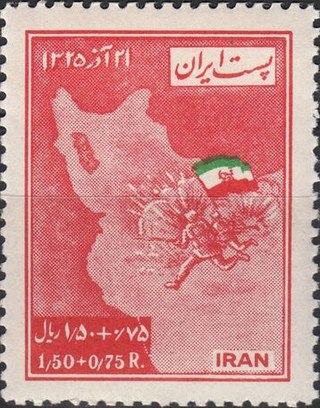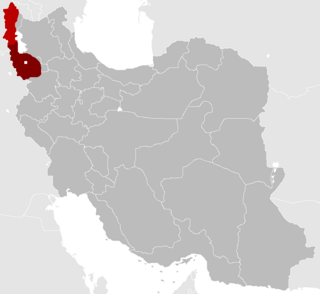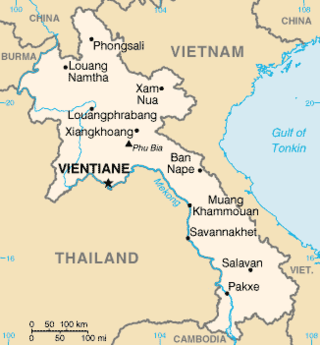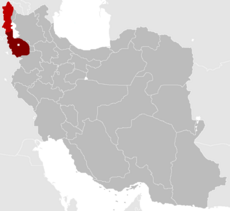
The United Nations Security Council (UNSC) is one of the six principal organs of the United Nations (UN) and is charged with ensuring international peace and security, recommending the admission of new UN members to the General Assembly, and approving any changes to the UN Charter. Its powers as outlined in the United Nations Charter include establishing peacekeeping operations, enacting international sanctions, and authorizing military action. The UNSC is the only UN body with authority to issue resolutions that are binding on member states.

The member states of the United Nations comprise 193 sovereign states. The United Nations (UN) is the world's largest intergovernmental organization. All members have equal representation in the UN General Assembly.

United Nations Security Council Resolution 425, adopted on 19 March 1978, five days after the Israeli invasion of Lebanon in the context of Palestinian insurgency in South Lebanon and the Lebanese Civil War, called on Israel to withdraw immediately its forces from Lebanon and established the United Nations Interim Force In Lebanon (UNIFIL). It was adopted by 12 votes to none; Czechoslovakia and the Soviet Union abstained, and China did not participate.

The Iran crisis of 1946, also known as the Azerbaijan crisis in Iranian sources, was one of the first crises of the Cold War, sparked by the refusal of Joseph Stalin's Soviet Union to relinquish occupied Iranian territory despite repeated assurances. The end of World War II should have resulted in the end of the Allied joint occupation of Iran. Instead, pro-Soviet Iranians proclaimed the separatist Azerbaijan People's Government and the Kurdish separatist Republic of Mahabad. The United States pressure on the Soviet Union to withdraw is the earliest evidence of success with the new strategy of Truman Doctrine and containment.

United Nations Security Council Resolution 2 was adopted unanimously on 30 January 1946. The Council urged Iran and the Soviet Union to resolve the crisis caused by the Soviet occupation of Iranian territory.

United Nations Security Council Resolution 5 was adopted on 8 May 1946. The Council deferred further proceedings surrounding the Iranian crisis until Iran submitted a complete report on the subject.

United Nations Security Council Resolution 1696, adopted on July 31, 2006, after expressing concern at the intentions of the nuclear programme of Iran, the Council demanded that Iran halt its uranium enrichment programme.

United Nations Security Council Resolution 132, adopted on September 7, 1959, decided to appoint a sub-committee consisting of Argentina, Italy, Japan and Tunisia, and instructed it to examine statements made before the Council concerning Laos and to receive further statements and documents, and make inquiries and report to the Council as soon as possible. It was the only resolution adopted by the Security Council in 1959.

United Nations Security Council Resolution 435, adopted on September 29, 1978, put forward proposals for a cease-fire and UN-supervised elections in South African-controlled South West Africa which ultimately led to the independence of Namibia. Importantly, it established the United Nations Transition Assistance Group (UNTAG) which oversaw the election and the South African withdrawal.

United Nations Security Council resolution 884, adopted unanimously on 12 November 1993, after reaffirming resolutions 822 (1993), 853 (1993) and 874 (1993), the Council expressed its concern at the continuing conflict between Armenia and Azerbaijan in Nagorno-Karabakh and condemned violations of the ceasefire between the parties, particularly the occupation of the Zəngilan district and city of Goradiz. Resolution 884 is the fourth and last of the resolutions adopted by the UN Security Council regarding the Nagorno-Karabakh conflict.

The sixth emergency special session of the United Nations General Assembly was held between 10 and 14 January 1980 to consider the situation in Afghanistan. As the what is known as the Soviet–Afghan War began, members of the United Nations General Assembly requested the Security Council consider the situation. The USSR veto of a resolution led the other members to invoke the 'Uniting for Peace' resolution to defer the issue to the General Assembly in an emergency special session. It was the sixth emergency special session since the 'Uniting for Peace' resolution was adopted in 1950. The session was dominated by questions of its legitimacy since the lately-hatched and newly-recognized Democratic Republic of Afghanistan had invited the Soviet intervention in their civil war. Led by the non-aligned members, the session ended with a resolution from the General Assembly calling for the immediate, unconditional and total withdrawal of foreign troops from Afghanistan and the cessation of all outside intervention, subversion, coercion or constraint, of any kind whatsoever, so that its people could freely choose its own economic, political and social systems. The Soviet machine scored a victory when, in the words of political scientist William Maley, "the General Assembly accepted the credentials of the delegation of the Soviet-installed puppet regime in Kabul which duly voted against the resolution," thus cementing the notion that it had invited them as peacekeepers.

United Nations Security Council Resolution 427, adopted on May 3, 1978, after considering a letter by the Secretary-General, the council decided to increase the strength of the United Nations Interim Force in Lebanon (UNIFIL) from 4,000 to 6,000 troops.

United Nations Security Council Resolution 502 was a resolution adopted by the United Nations Security Council on 3 April 1982. After expressing its concern at the invasion of the Falkland Islands by the armed forces of Argentina, the council demanded an immediate cessation of hostilities between Argentina and the United Kingdom and a complete withdrawal by Argentine forces. The council also called on the governments of Argentina and the United Kingdom to seek a diplomatic solution to the situation and refrain from further military action.

The United Nations General Assembly resolution 498 was approved on February 1, 1951, in response to the intervention of Chinese Communist troops in Korean War.

The Spanish question was the set of geopolitical and diplomatic circumstances that marked the relationship between Spain and the United Nations between 1945 and 1955, centred on the UN's refusal to admit Spain to the organization due to Francoist Spain's sympathy for the Axis powers, defeated in World War II.

The eleventh emergency special session of the United Nations General Assembly opened on 28 February 2022 at the United Nations headquarters. It addresses the Russian invasion of Ukraine. Maldivian politician Abdulla Shahid served as President of the body during this time.

United Nations General Assembly Resolution ES‑11/1 is a resolution of the eleventh emergency special session of the United Nations General Assembly, adopted on 2 March 2022. It deplored Russia's invasion of Ukraine and demanded a full withdrawal of Russian forces and a reversal of its decision to recognise the self-declared People's Republics of Donetsk and Luhansk.

United Nations General Assembly Resolution ES‑11/2 is the second resolution of the eleventh emergency special session of the United Nations General Assembly, adopted on 24 March 2022, following Resolution ES-11/1 which was adopted on 2 March 2022. Resolution ES‑11/2 reaffirmed the UN's former commitments and obligations under its Charter, and reiterated its demand that Russia withdraw from Ukraine's recognized sovereign territory; it also deplored, expressed grave concern over and condemned attacks on civilian populations and infrastructure. Fourteen principles were agreed.
















